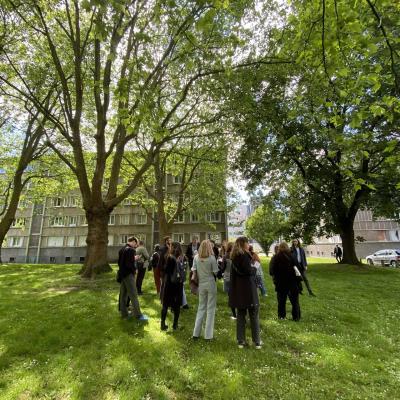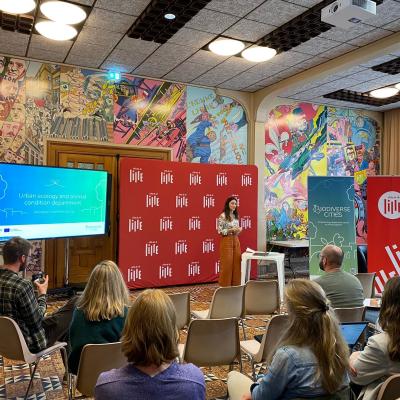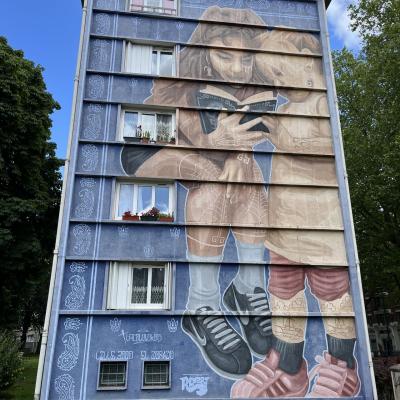The city of Lille hosted the 4th Partner meeting of the Biodiverse Cities project. This was a great opportunity for the international group to learn and get inspired by the biodiversity-ambitious French city!
The city has various initiatives already underway locally with depaving areas and making room for nature, developing easy and affordable green walls and bringing biodiversity in the urban areas in many creative ways.
The city is also very active in the EU-level and national field. Lille is one of the over 100 European cities that have committed to tackling the most pressing urban environmental challenges by signing the Green City Accord.
Within the realm of Biodiverse Cities, the city of Lille is working on three pilots to provide high quality green spaces in public and private areas. During the meeting the group explored one of the pilots in depth - the Petits Gris Residence.
Spotlight on the Petits Gris Residence
The Petits Gris residence, situated in the heart of Lille, faces several environmental challenges, including air pollution, poor thermal standards, and a lack of green spaces. As one of the most climate-affected areas in Lille, this social housing complex is a focal point for the Biodiverse Cities project. The initiative aims to reimagine and enhance the green spaces around the residence through various nature-based solutions, developed in collaboration with the local community. Social centres and schools close to the residence will also participate in the creation process, ensuring that the community's needs are prioritised and overall well-being is improved.
During their visit, the partners toured the Petits Gris site, guided by the social landlord and the city's ecologist. They explored areas deemed "of biodiversity interest" and discussed potential improvements, species protection, and the selection of biodiverse nature-based solutions. This on-site reflection was furthered through a World Café session, where participants engaged in small-group conversations to address the challenges observed during the tour and to strengthen Lille's biodiversity roadmap.
Co-creation at the heart of exchanges
During the partner meeting the University of Bremen and Open Kaart provided state-of-the-art methodologies and knowledge on co-creation and citizen engagement. These sessions were particularly beneficial for Lille’s pilot project at Jules Lefevre (another pilot of the city), based on transforming an old city-owned building site into an edible and shared garden. The planned site will feature diverse spaces including allotments, wetlands, and an orchard; and requires in depth-work regarding the division and cohabitation of spaces between users. Lille will incorporate the development of a guide for good gardening practices and effective water management into its strategy, seamlessly integrating the site into the broader urban network.
What comes next?
With the Biodiverse Cities project at its midpoint, the Lille meeting marked a significant milestone in the collaborative effort towards sustainable urban futures. We look forward to the continued evolution of nature in cities.
Next stop – Växjö! In September the Biodiverse Cities team will meet to work on how to set up Biodiversity Experimentation Sprints with the community for temporary NBS!



